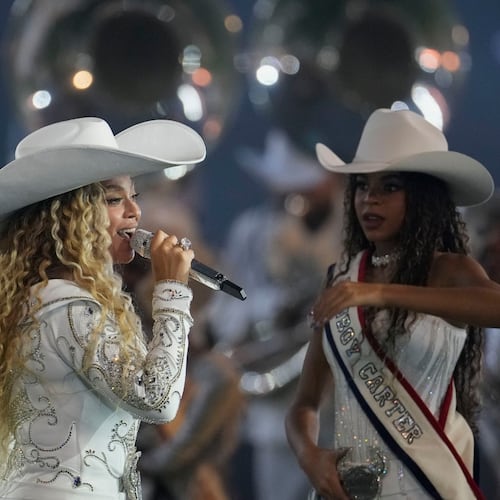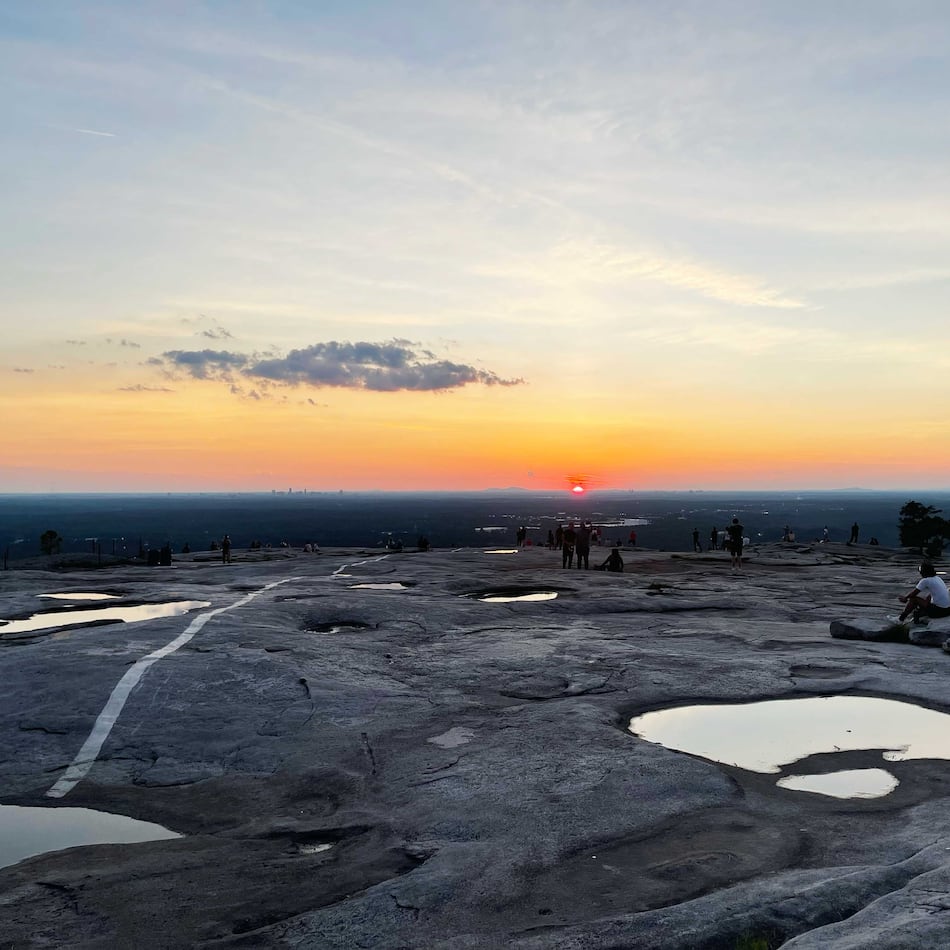An orangutan infant like the boy born at Zoo Atlanta on March 30 should cling immediately to its mother and stay near her for almost a decade. It takes years for an orangutan mother to teach her child to eat, climb, interact and survive. Only humans have a longer dependent childhood.
Not so for Sandar.
Since days after his birth, the youngest of the zoo's 11 orangutans has been fed, stroked and cradled, not by the mother who bore him, but a team of zoo caretakers and 16 volunteer nurses from Children's Healthcare of Atlanta. Each sits for hours in a light-green, windowless room inside the zoo's veterinary clinic, where they watch the tiny ape's oxygen levels, feed him through a tube every few hours and teach him to suckle with pacifiers. They wear their hair down so he'll have something to cling to, and they rarely set him down, except to change his preemie-sized diapers.
Wednesday will be his 53rd day in the arms of a human.
"We make noises, the ‘Ooh, ooh, ooh,' " nurse Melissa Goodbread said softly, the Bornean orangutan at her chest. "He's happy as long as he has something to hold on to."
At 18, Sandar's mom, Miri, is an experienced parent who instinctively raised 6-year-old Satu into a healthy, outgoing child with striking pale circles around his eyes. His birth was a coup for the endangered species, and for the zoo, which has the largest orangutan collection in the United States. Her second pregnancy was harder, and the full-term infant weighed only 2.2 pounds, less than half the size that a newborn orangutan should. Miri wouldn't let him go, even after three days with little nursing.
Zoo staff tranquilized her and made plans to hand-rear the infant, whom they named using the Malay word for "to rely on." Afterward, orangutan keepers warned the veterinary staff to stay away. Miri would know her baby was gone, and her keepers couldn’t predict how such a strong animal would react when she saw the people who took it.
"That's never an easy decision," said Hayley Murphy, the zoo's director of veterinary services. "You do not want to interfere with a mother-baby bond."
Volunteer Children's Healthcare doctors found a small hole in Sandar's heart. He has a murmur, but if he's anything like human babies -- orangutans share 97 percent of our genetic makeup -- it will heal on its own. Other problems piled on, though, including pneumonia and hernias. Doctors and nurses, reporting to the zoo after shifts at the hospital, cared for him with the specialized equipment and skills usually reserved for a human neonatal intensive care unit.
“If you showed the ultrasounds to a cardiologist and didn’t tell them it was an orangutan, they wouldn’t be able to tell,” said Usama Kanaan, a cardiologist with the Children's Healthcare Sibley Heart Center.
This week, Kanaan felt for swelling in Sandar's feet, then his liver. The medical team turned Sandar like he was giving the nurse a hug and let the doctor hear his lungs. Sandar now weighs close to five pounds and hasn't yet mastered bottle feeding, the doctor notes. His eyes, surrounded by pale circles like his brother's, droop with fatigue. His condition is still guarded, but there aren't any new problems.
Zoo staffers hope Sandar can see and smell other orangutans on a visit to their building this week. Only once he eats from a bottle and breathes on his own will they gradually reintroduce him to his own kind. Miri and a Sumatran orangutan surrogate are training with baby dolls they must return to keepers for bottle feeding. Zoo staff don't know whether Sandar's mother will recognize him.
"In the wild, he would be with his mom, skin to skin, hair to hair," said Chrys Fields, a Children's Healthcare neonatal intensive care nurse at Egleston who organized Sandar's nurses. “This is all to be able to get him back to his family."
In the wild, or even left alone in the care of his mother, Sandar would have died long ago, said Dwight Lawson, the zoo's senior vice president of collections, education and conservation. It would be another loss for a species mostly threatened by illegal collection and habitat loss. The most dire predictions suggest they'll be wiped from their native islands of Borneo and Sumatra in 20 years.
But this is a zoo, Lawson said, and once you have a baby orangutan, you will find as many open arms as it takes to keep him alive.
About the Author
Keep Reading
The Latest
Featured


